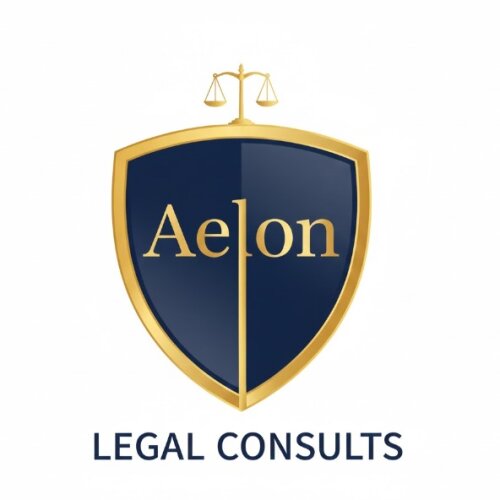Best Guardianship Lawyers in Nigeria
Share your needs with us, get contacted by law firms.
Free. Takes 2 min.
Or refine your search by selecting a city:
List of the best lawyers in Nigeria
About Guardianship Law in Nigeria
Guardianship in Nigeria primarily revolves around the legal responsibility bestowed upon an individual to care for a minor or an incapacitated person. This legal framework determines who can make decisions concerning the personal, medical, and financial aspects of the individual needing guardianship. It aligns broadly with common law principles but is also influenced by customary laws, which vary significantly across different regions and ethnic groups. The guiding legal documents include the Child's Rights Act and various regional laws that reflect indigenous cultures and Western legal traditions.
Why You May Need a Lawyer
Legal assistance in guardianship matters is often necessary due to the complexity and sensitivity of such issues. Common situations where one may require a lawyer include disputes over guardianship appointment, navigating the legal process of becoming a guardian, handling cases where there might be allegations of neglect or abuse, and managing the finances and properties of the ward responsibly. A lawyer can offer valuable guidance through legal proceedings, ensure compliance with all judicial requirements, and provide representation in court if needed.
Local Laws Overview
The specific laws governing guardianship in Nigeria can vary from one region to another, primarily due to the combination of statutory law and customary law. Key aspects of these laws involve the Child's Rights Act, which sets a framework for the protection of children's rights and includes provisions for guardianship. Moreover, regional legislation may influence guardianship proceedings, especially if customary practices are taken into account. The legal age of majority (18 years) and prerequisites for guardianship are set out in these laws, defining who is eligible to be a guardian and the rights and responsibilities entailed.
Frequently Asked Questions
What is guardianship?
Guardianship refers to the legal responsibility of an individual to care for another person who is unable to manage their own affairs due to being a minor or incapacitated.
How is a guardian appointed in Nigeria?
A guardian is typically appointed through a legal process, which may involve court proceedings or agreements within family units, adhering to statutory and customary law principles.
What are the responsibilities of a guardian?
The responsibilities include managing the personal, financial, and medical affairs of the individual under guardianship and ensuring their overall well-being.
Can guardianship be challenged in Nigeria?
Yes, guardianship can be contested through legal means if there is cause to believe the guardian is unfit or if there are disputes about the necessity or terms of the guardianship.
Are guardianship laws the same across Nigeria?
No, guardianship laws vary across different regions due to the influence of customary laws alongside statutory laws, which can lead to variations in legal proceedings and guardianship rights.
How does customary law affect guardianship?
Customary law can influence the appointment and responsibilities of guardians, especially in rural areas where traditional practices are more prevalent.
What is the role of the court in guardianship matters?
The court plays a crucial role in appointing guardians, resolving disputes, and ensuring that the rights and welfare of the person under guardianship are protected.
Can a guardian manage a ward’s finances?
Yes, it is part of the guardian's duties to manage the ward’s financial affairs prudently and in their best interests.
What happens if a guardian fails in their duties?
If a guardian fails in their duties, legal action can be taken to remove them or to hold them accountable for any harm caused to the ward.
What are the legal implications of guardianship termination?
Termination of guardianship generally occurs when the ward reaches the age of majority or becomes capable, or through court order. Legal implications include the cessation of the guardian's rights and responsibilities.
Additional Resources
For further assistance, individuals can reach out to the Ministry of Women Affairs and Social Development, The Nigerian Bar Association for legal representation, and NGOs focused on child and family welfare. These bodies provide resources, support, and guidance for guardianship issues.
Next Steps
If you require legal assistance in a guardianship matter, it is advisable to consult a lawyer with experience in family law. Gather all relevant information and documentation about your case and seek guidance on the most appropriate legal steps. It may also be useful to attend a legal aid clinic or consultation service provided by relevant NGOs or legal bodies.
Lawzana helps you find the best lawyers and law firms in Nigeria through a curated and pre-screened list of qualified legal professionals. Our platform offers rankings and detailed profiles of attorneys and law firms, allowing you to compare based on practice areas, including Guardianship, experience, and client feedback.
Each profile includes a description of the firm's areas of practice, client reviews, team members and partners, year of establishment, spoken languages, office locations, contact information, social media presence, and any published articles or resources. Most firms on our platform speak English and are experienced in both local and international legal matters.
Get a quote from top-rated law firms in Nigeria — quickly, securely, and without unnecessary hassle.
Disclaimer:
The information provided on this page is for general informational purposes only and does not constitute legal advice. While we strive to ensure the accuracy and relevance of the content, legal information may change over time, and interpretations of the law can vary. You should always consult with a qualified legal professional for advice specific to your situation.
We disclaim all liability for actions taken or not taken based on the content of this page. If you believe any information is incorrect or outdated, please contact us, and we will review and update it where appropriate.
Browse guardianship law firms by city in Nigeria
Refine your search by selecting a city.

















